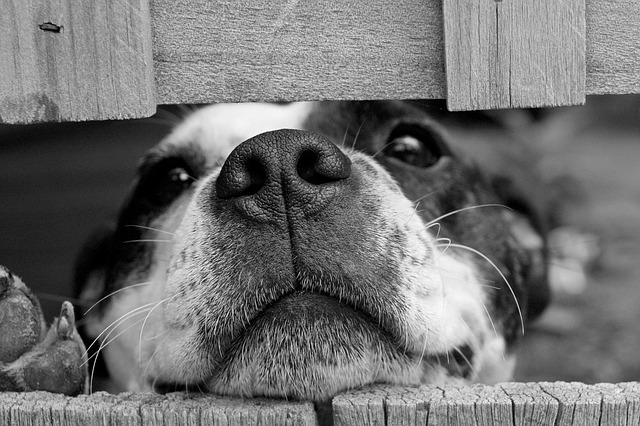- Calls to this hotline are currently being directed to Within Health, Fay or Eating Disorder Solutions
- Representatives are standing by 24/7 to help answer your questions
- All calls are confidential and HIPAA compliant
- There is no obligation or cost to call
- Eating Disorder Hope does not receive any commissions or fees dependent upon which provider you select
- Additional treatment providers are located on our directory or samhsa.gov
Pet Therapy For the Child Recovering From Abuse and Neglect

Contributor: Crystal Karges, MS, RDN, IBCLC, Special Projects Coordinator at Eating Disorder Hope/Addiction Hope
Countless children are the victim of some form of abuse or neglect, whether physical, emotional, psychological or sexual. According to ChildHelp, more than 3 million reports of child abuse are made in the United States each year, involving more than 6 million children [1].
The consequences of child abuse and neglect are detrimental, as children who suffer with adverse childhood experiences have a higher risk of mental health disorders, addiction, sexual and reproductive health issues, and more.
Eating Disorders Can Appear from Childhood Abuse/Neglect
Children who experience child abuse and neglect may be at increased risk for substance abuse and addiction, depression/anxiety or other mood disorders, suicide attempts, domestic violence, eating disorders, unintended pregnancies, and early fatality. Children who experience child abuse and neglect are approximately nine times more likely to become in criminal activity as well [2].
Professional and comprehensive treatment should be utilized in order to address the many complex issues connected with child abuse and neglect and to assist a child in recovery and healing. Depending on the severity of the abuse and neglect, treatment may include medical/nutritional interventions, psychiatric care, psychotherapy, behavioral therapies, and more.
Many Abused/Neglected Children Respond Well to Pet Therapy
Many children often respond well to various forms of therapy to promote healing from the experience of trauma, abuse and neglect. This may include alternative forms of therapy, such as pet therapy. Through the interaction of a specialized trained pet, children can find healing and a therapeutic means of coping with stress, trauma, and or anxiety created by the experience of abuse and neglect.
Through pet therapy, a child can experience a non-threatening and safe channel for communicating, and the benefits of pet therapy include physical, mental, and emotional.
If you or someone you love has experienced child abuse, be sure to connect to professional treatment to discover the best forms of healing. In any urgent situations, please call the National Child Abuse Hotline at 1-800-4-A-CHILD.
Community Discussion – Share your thoughts here!
Have you had any experience with pet therapy? If so, how did this benefit you or someone you care for?
 Crystal is a Masters-level Registered Dietitian Nutritionist (RDN) with a specialty focus in eating disorders, maternal/child health and wellness, and intuitive eating. Combining clinical experience with a love of social media and writing, Crystal serves as the Special Projects Coordinator for Eating Disorder Hope/Addiction Hope, where her passion to help others find recovery and healing is integrated into each part of her work.
Crystal is a Masters-level Registered Dietitian Nutritionist (RDN) with a specialty focus in eating disorders, maternal/child health and wellness, and intuitive eating. Combining clinical experience with a love of social media and writing, Crystal serves as the Special Projects Coordinator for Eating Disorder Hope/Addiction Hope, where her passion to help others find recovery and healing is integrated into each part of her work.
As a Certified Intuitive Eating Counselor, Crystal has dedicated her career to helping others establish a healthy relationship with food and body through her work with EDH/AH and nutrition private practice.
References:
[1]: Childhelp, “Child Abuse Statistics and Facts”, https://www.childhelp.org/child-abuse-statistics/[2]: Harlow, CW. Prior Abuse Reported by Inmates and Probationers. Washington, DC: US Dept. of Justice, Office of Justice Programs, Bureau of Justice Statistics, 1999
The opinions and views of our guest contributors are shared to provide a broad perspective of eating disorders. These are not necessarily the views of Eating Disorder Hope, but an effort to offer discussion of various issues by different concerned individuals.
We at Eating Disorder Hope understand that eating disorders result from a combination of environmental and genetic factors. If you or a loved one are suffering from an eating disorder, please know that there is hope for you, and seek immediate professional help.
Last Updated & Reviewed By: Jacquelyn Ekern, MS, LPC on January 24, 2016
Published on EatingDisorderHope.com

The EatingDisorderHope.com editorial team comprises experienced writers, editors, and medical reviewers specializing in eating disorders, treatment, and mental and behavioral health.

